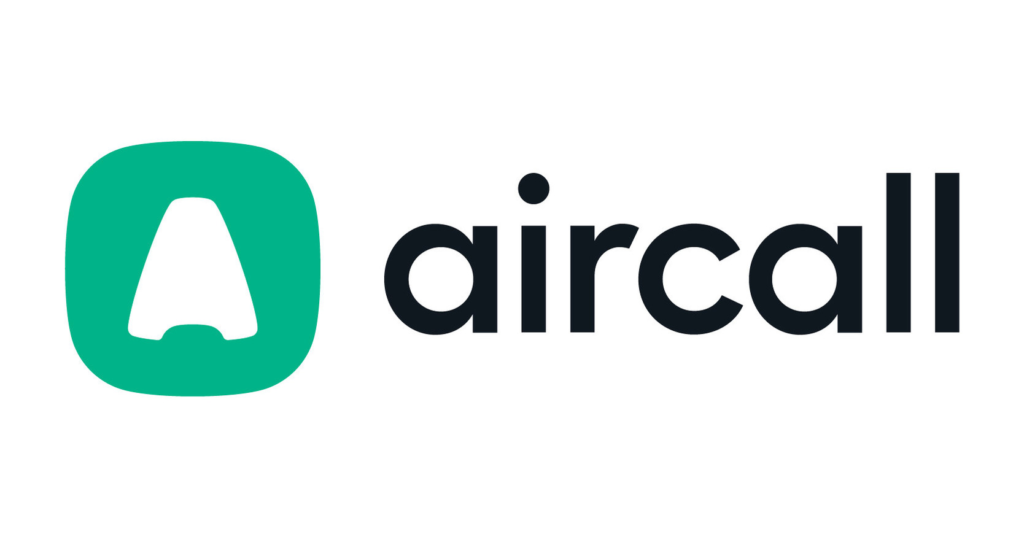In the realm of modern business communication, Aircall stands as a beacon, offering a robust platform designed to streamline and enhance the way organizations connect with their customers. From cutting-edge features to potential limitations, Aircall has established itself as a go-to solution. Let’s delve into the intricacies of Aircall, exploring its features, limitations, what sets it apart, and why users may seek a suitable Aircall alternative.
Unleashing the Potential: Exploring Aircall and its Alternatives

Features of Aircall: Enhancing Business Communication
- Superior Call Quality: Crystal-clear audio ensures impactful and high-quality conversations, contributing to a professional communication experience.
- Intuitive User Interface: A user-friendly design facilitates seamless call management, allowing users to navigate the platform with ease and efficiency.
- Powerful Integrations: The platform offers seamless integration with third-party applications, enhancing connectivity and ensuring a unified communication experience.
- Real-time Analytics: Data-driven insights provide users with a comprehensive overview of call performance, enabling informed decision-making for optimized communication strategies.
Limitations of Aircall: Considerations for Users
- Scaling Costs: As usage grows, businesses may encounter proportional increases in expenses, necessitating careful consideration for scalable and cost-effective alternatives.
- Internet Dependency: Aircall’s optimal performance relies on stable internet connectivity, posing potential challenges in regions with limited or unstable internet access.
- Limited Customization: The platform’s customization options may have constraints, limiting the tailoring of the system to accommodate highly specific or unique business processes.
What Sets Aircall Apart
Aircall stands out in the competitive landscape of communication solutions by delivering a superior user experience marked by unparalleled call quality and reliability. Its intuitive user interface ensures ease of navigation, allowing users to manage calls effortlessly.
Aircall’s strength lies in its powerful integrations, serving as a central hub for comprehensive connectivity with various third-party applications. Real-time analytics provide valuable insights for informed decision-making.
Moreover, Aircall’s commitment to a customer-centric approach, global reach with multi-language support, and scalability tailored to businesses of all sizes further distinguish it as a standout communication platform.
The platform’s unique blend of features, reliability, and adaptability positions Aircall as a top choice for organizations seeking an advanced and flexible communication solution.
The Need for an Aircall Alternative: Navigating Business Communication Challenges

As businesses evolve, so do their communication requirements, prompting the exploration of alternatives to Aircall. The need for an Aircall alternative arises from various considerations, each influencing the decision-making process for organizations seeking an optimal communication solution.
1. Addressing Scaling Costs
As businesses grow, the scaling costs associated with an Aircall alternative may become a significant factor. Exploring an Aircall alternative allows organizations to find solutions with more flexible and scalable pricing models, aligning with their expanding communication needs without incurring disproportionate expenses.
2. Overcoming Dependency on Internet Connectivity
Aircall’s reliance on stable internet connectivity, while providing flexibility, may pose challenges in regions with limited or unstable internet access. Businesses operating in such areas seek alternatives that ensure reliable communication channels even under challenging network conditions, mitigating potential disruptions.
3. Seeking Customization for Unique Workflows
While Aircall offers a range of features, businesses with highly specific or unique workflows may find its customization options limited. Exploring an Aircall alternative becomes essential for organizations looking for platforms that provide more extensive customization capabilities, allowing them to tailor communication processes to their specific business requirements.
4. Exploring Additional Features and Integration Capabilities
Organizations evolving in their communication strategies may seek an Aircall alternative offering additional features beyond Aircall’s scope. Exploring alternatives allows businesses to identify platforms with enhanced integration capabilities, ensuring seamless connectivity with a broader array of third-party applications.
5. Evaluating Support and Reliability
The need for consistent support and reliability in communication platforms is crucial for businesses. Exploring an Aircall alternative enables organizations to assess different platforms’ support structures and reliability, ensuring a stable and dependable communication environment for uninterrupted operations.
Commonly Used Aircall Alternatives For Streamlined Communication

As businesses seek communication solutions tailored to their unique needs, several alternatives to Aircall have gained prominence. Each alternative offers a distinct set of features, advantages, and use cases. Let’s explore these Aircall alternatives in detail:
1. RingCentral: Elevating Unified Communication
RingCentral stands as a robust Aircall alternative, providing more than just traditional calling features. With advanced collaboration tools, RingCentral caters to businesses seeking a comprehensive solution for their communication needs. The platform seamlessly integrates voice, video, messaging, and conferencing, offering a unified experience that enhances organizational connectivity.
2. 8×8: Seamless Integration for Enhanced Connectivity
For businesses valuing seamless integration across communication channels, 8×8 is a compelling Aircall alternative. This platform goes beyond conventional calling, providing a unified experience that connects voice, video, chat, and contact center functionalities. 8×8’s focus on integration ensures that organizations can streamline their communication processes for improved efficiency.
3. Zoom Phone: Converging Communication and Collaboration
Zoom Phone extends the renowned video conferencing capabilities of Zoom into the realm of voice communication. As a versatile Aircall alternative, Zoom Phone converges communication and collaboration seamlessly. Businesses looking for a unified platform that integrates voice, video, and chat features find Zoom Phone to be a comprehensive solution that aligns with the demands of modern workplaces.
4. Twilio: Unleashing the Power of APIs
For businesses with a focus on customization and leveraging APIs, Twilio emerges as a powerful alternative to Aircall. Twilio provides a flexible communication platform, allowing businesses to build custom communication solutions tailored to their unique needs. With its extensive set of APIs, Twilio empowers organizations to create bespoke communication experiences that align precisely with their workflows.
5. Grasshopper: Simplicity and Flexibility for Small Businesses
Grasshopper caters to small businesses with an emphasis on simplicity and flexibility. As an alternative to Aircall, Grasshopper offers virtual phone numbers, call forwarding, and other features designed to meet the specific requirements of smaller enterprises. Its user-friendly interface and straightforward setup make Grasshopper an ideal choice for those seeking a communication solution that balances ease of use with essential functionality.
6. Vonage Business: Enhancing Communication for Enterprises
Vonage Business positions itself as a comprehensive communication solution for enterprises, making it a noteworthy alternative to Aircall. With features like unified messaging, video conferencing, and robust collaboration tools, Vonage Business addresses the diverse communication needs of large organizations while emphasizing reliability and scalability.
7. Ooma Office: Cost-Effective Communication for SMBs
Ooma Office is a cost-effective alternative tailored for small and medium-sized businesses (SMBs). Offering a range of features, including virtual receptionists and advanced call handling, Ooma Office provides a budget-friendly solution without compromising on essential communication functionalities.
8. Jive Communications: VoIP Excellence for Business
Jive Communications stands out as a VoIP-focused alternative, offering a feature-rich platform designed for businesses. With advanced VoIP capabilities, Jive Communications provides a reliable and scalable solution that enhances voice communication, making it suitable for organizations of various sizes.
9. Dialpad: Cloud Communication for Modern Workplaces
Dialpad presents itself as a cloud communication alternative, catering to the needs of modern workplaces. With a focus on simplicity, mobility, and AI-powered features, Dialpad offers businesses a communication solution that adapts to the evolving dynamics of remote and flexible work environments.
10. Google Voice: Versatile Communication for Individuals and Small Teams
Google Voice serves as a versatile alternative, particularly suitable for individuals and small teams. With features like voicemail transcription, call forwarding, and integration with other Google Workspace applications, Google Voice provides a streamlined communication experience for users looking for simplicity and integration with existing Google services.
Factors To Consider While Choosing The Perfect Aircall Alternative

As businesses explore alternatives to Aircall, certain factors come into play, influencing the decision-making process. To ensure that the chosen alternative aligns seamlessly with organizational needs, consider the following key factors:
1. Scalability: Meeting Growing Communication Demands
When seeking an Aircall alternative, assess the scalability of the platform. Ensure that the chosen solution can accommodate the growing communication demands of your business without compromising on performance or incurring exorbitant costs.
2. Integration Capabilities: Harmonizing Communication Channels
Evaluate the integration capabilities of the alternative. A platform that seamlessly integrates with existing tools and applications ensures a harmonized communication ecosystem, enhancing organizational efficiency.
3. Cost Structure: Balancing Features with Affordability
Consider the cost structure of the alternative, keeping in mind your budget constraints. Look for a solution that offers a balance between essential features and affordability, ensuring that you get value for your investment.
4. Customization Options: Tailoring Communication Workflows
Examine the customization options provided by the alternative. The ability to tailor communication workflows according to your specific business processes ensures that the platform aligns precisely with your organizational requirements.
5. Reliability and Support: Ensuring a Seamless Communication Experience
Prioritize reliability and support when choosing an alternative. A platform with a track record of uptime, coupled with responsive customer support, contributes to a seamless communication experience and minimizes potential disruptions.
Conclusion
In the dynamic landscape of business communication, the quest for the perfect Aircall alternative is both strategic and nuanced. Whether driven by specific feature requirements, budget considerations, or the need for a more scalable solution, businesses have a plethora of alternatives to explore.
By carefully assessing the unique features, advantages, and limitations of each alternative, organizations can make informed decisions that align with their communication objectives. Whether it’s the unified communication prowess of RingCentral, the customization capabilities of Twilio, or the simplicity of Grasshopper, each alternative offers a distinct approach to addressing the diverse communication needs of businesses.
As the digital landscape continues to evolve, so too will the options available for businesses seeking communication solutions. The key lies in staying attuned to the ever-changing dynamics of technology and communication, ensuring that the chosen alternative not only meets current needs but also adapts to the future demands of an increasingly connected world.









